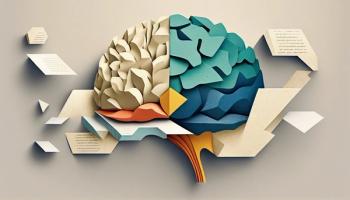
- Psychiatric Times Vol 29 No 6
- Volume 29
- Issue 6
Letter to a Young Psychiatrist
Psychiatry is a profession that deeply needs honest workers who are willing to seek a knowing ignorance, to be dissatisfied, and to refuse to conform-doing so in the interest of the truth and of the profession, seeing both as inseparable.
It’s easy to give advice, hard to receive it, harder still to live it. The privilege of youth is action; of age, experience. Nature resists combining both. Experience is a comb you get when you’re bald.
I teach ignorance. Four years of medical school; and 4 more years of residency. Tens of thousands of dollars of debt, and years of minimum wage labor. You must think you have bought something with those funds and that toil; you must finally know something special. You graduate, and you get to work in this bewildering business. People pay you-and so you must know something. If decades pass and you keep getting paid and you don’t pause to reflect, you may end your life thinking that you know much. In fact, as newer generations come up, they see what you don’t.
I teach we don’t know; I teach that knowledge only increases our ignorance. This is what knowledge is: knowing what we know and, just as importantly, knowing what we don’t know.
Knowledge is 2-edged: it illuminates a fact or a part of experience. Usually, in so doing, it shows that what previously seemed sunlit truth is now utter darkness. As you learn something, you realize that much of what you “knew” was actually false. You become more ignorant as you become more wise.
Young psychiatrists need to learn, foremost, that they are ignorant. And they need to learn that their elders are even more ignorant, sometimes because they are wise-because the more you know, the more ignorant you are-sometimes because they are blind.
There is a beneficial and a baleful ignorance. The harmful kind is the ignorance of he who thinks he knows-end of story. This fellow doesn’t know and is simply “mind-blind.”2 He is not wisely ignorant: he doesn’t know that what seemed “true” is false; he just thinks it’s true. Most of your teachers are of this variety, and most of your patients, and most of your colleagues-and, most likely, you.
Look for the dogma. Whatever is believed by most, is likely to be untrue. The truth is not a matter of popular vote; it tends to prefer solitary homes.
Live on the sunny side of doubt. Some doubt darkly: they disbelieve everything and everyone; the truth saunters in front of them and is treated like a vagrant. Take a naive, childlike attitude toward ideas: accept everything-initially, then think on it and reject what seems wrong. Most of your colleagues do the reverse: they reject everything immediately, so as not to disrupt the feeble furniture of their minds; rarely, and with great languidity, do they ever come to accept a new idea.
Reject a superficial worldly skepticism: don’t read The New York Times as your main supply of psychiatric discourse. Read the old books and the journals-not the new books2 and the newspapers. Why do we all wrangle about the disputations in The New York Times and ignore the quiet facts of Acta Psychiatrica Scandinavica? One article in the Times is sent to an entire department e-mail list; the poor Acta meta-analysis sits ignored, except by an occasional half-dozen–member journal club.
So on our heels a fresh perfection treads
. . . born of us
And fated to excel us.
-John Keats1
The best go unnoticed, and the least are loudest.
The greatest danger for your work is not that you don’t know enough about mental illness . . . it’s that you think you know more than you do. The danger is complacency and conformity, above all-above everything else. You will constantly be pressed to comply, to go along. Do so, on all that is unimportant. But where it is important, resist. Kick up, kiss down-if you dare; the world will punish you, but you will improve it.
Complacency. You think you know, or you think you don’t know, but in either case, you’re satisfied. Be dissatisfied. Your profession has not lived up-for over a century-to what it could be. It has gerrymandered diagnoses like politicians make up voting districts: on “pragmatic” grounds, for the good of the profession.3 Nature doesn’t obey politicians, whether in state houses or hospitals. And so the genetic and drug and biology studies refuse to line up with DSM labels. Science was degraded (previously) or applauded (recently)-and ignored, for the good of the profession. Your profession hasn’t fully accepted that what is good for the profession is to get at the truth.
Some say there are no truths, only powers that seek to hide behind claims to truth. God is dead, we are told, but the pharmaceutical industry lives. And science is just another interest group: there is no scientific truth, just the opinions of scientists.
I would like to visit God’s grave; someone tell me where it is. I think I will find Reason interred next door, and Science just beneath a weeping angel. With Him died Truth. No capital T’s are allowed, and even small t’s are suspected. But when your patients die, because of something you did-or, more commonly, didn’t do-then there are truths. The dead body attests to it, as do the living bodies you could save.
This postmodern belief that there are no truths, only wills to power, produces a dangerously medieval mindset that imagines itself to be avant-garde. The mind becomes blind and a profession stands still.
Conformity. Half a century ago, you would have pledged allegiance to the Trinity of id, ego, and superego-and you would have spent your time and inheritance in formal psychoanalysis. Today, you will treat your patients with the Trinity of antidepressants, antipsychotics, and anxiolytics-and you will buy the drug textbooks with the appealing synaptic cartoons. In each epoch, you conform to your profession; it is the standard of care, and you will be legally protected. You’ll have to make a living, and you’ll have children and mortgages, and you’ll need to protect them. I don’t fault you. But the profession needs something else.
Your drugs aren’t as good as your colleagues believe, nor are they as bad as our critics say. Your colleague will say it’s easy: give a drug for a symptom-an anxiolytic for anxiety, antidepressant for sadness, neuroleptic for mood swings, amphetamine for concentration and energy and sex. It’s easy-like being a Volkswagen mechanic.4 But your patients’ brains are Porsches. They break down if treated this way. It’s easy: you don’t need an MD for
We disparage the “medical model,” as if the phrase itself is proof of its fallacy. But we use the MD degree as a badge of expertise, and we practice with a legal privilege of dispensing potentially harmful drugs. It’s no sin to acknowledge biology; it’s a sin to say it, and not mean it.
Our siblings in medicine have already shown us the way. A century ago, we didn’t understand diseases and everyone got potions for symptoms-bleeding in particular. About half a century ago, we began curing, with antibiotics, then with other specific drugs (such as insulin and steroids).5 In medicine, we sometimes understand diseases; in psychiatry, we distrust the concept of disease. In medicine, we sometimes use drugs that cure; in psychiatry, we disbelieve in cure.
Of course, not all psychiatric problems are diseases; most aren’t. But some are. Not all drugs cure; most don’t. But some do. Until we realize which is which-which syndrome is a disease and which is not, which drugs cure and which don’t-we’ll keep guessing, mostly wrongly, while we complacently conform with the profession.
The mental and social aspects of illness matter, you will say; certainly, but not always, and not in the same way for all conditions. Until we know what’s what, all generalizations are false. And since you will want to prescribe pills to make your living, you should at least try to understand well what is biological and what is not.
We despise ourselves too little, and too much. Too much because our medical colleagues disparage us and we have enemies in the public, making us feel inferior. We are criticized wrongly, and rightly, and we protest both criticisms equally instead of rebutting the first and embracing the second. Don’t respond to stigma with stigma, doubting yourself: reject it as worse than racism, the deepest human intolerance, based not on a moral baseness, but on pure ignorance.
We despise ourselves too little: we reject too much and circle around each other, back-to-back. Our colleagues act as if criticizing their drugs is a personal offense against them. Child psychiatry can survive without overuse of amphetamines, and adult psychiatry, without excess antidepressants and neuroleptics. Here is where our loss of science hurts most, for the essence of science is to be self-critical. It’s not about being conventionally honest with others, it’s about being utterly honest with yourself.6 This attitude, which is the scientific attitude, is completely unnatural. Often we aren’t scientific enough, and then our practice becomes uneducated guessing, which we comfortably accept as just the way it is: “Behold, I show you the most despicable man of all: he who cannot despise himself.”7
You have entered a difficult profession, not an impossible one. It is a profession that deeply needs honest workers who are willing to seek a knowing ignorance, to be dissatisfied, and to refuse to conform-doing so in the interest of the truth and of the profession, seeing both as inseparable. You need to make a living, but you also need to breathe life into your profession.
In a word, half of what you know is true, and half false, and you don’t know which is which. If you know this, you know all you can now know-a good start. Act so that future generations can have a better starting place.
References:
References
1. Keats J. Keats’s Poetry and Prose. Cox JN, ed. New York: WW Norton; 2009.
2. Osler W. Aequanimitas. 3rd ed. New York: McGraw-Hill; 1932.
3. Ghaemi SN. Couch-pragmatism. Psychiatr Times. 2010;27(10):16-21.
4. Ghaemi SN. Volkswagen psychopharmacology. Psychiatr Times. 2011;28(5):9.
5. Wootton D. Bad Medicine: Doctors Doing Harm Since Hippocrates. New York: Oxford University Press; 2006.
6. Feynman RP. Cargo cult science. Some remarks on science, pseudoscience, and learning how not to fool yourself. Caltech’s 1974 commencement address. Engineering and Science. 1974;37(7):10-13.
7. Nietzsche F. Thus Spoke Zarathustra. Del Caro A, ed. Pippin R, trans. Cambridge, United Kingdom: Cambridge University Press; 2006.
Articles in this issue
over 13 years ago
Doctors Die Differently: Why-and Howover 13 years ago
Advance Directives: Two Newer Approachesover 13 years ago
Brain Aging and Dementia: Practical Tips From Clinical Researchover 13 years ago
The Laura B.over 13 years ago
Practical Guide to Correctional Mental Health and the Lawover 13 years ago
The Cannabis-Psychosis Link: Mind Your Mindover 13 years ago
The Effects of Antidepressants on Sleepover 13 years ago
ADHD and Sleep Disorders in ChildrenNewsletter
Receive trusted psychiatric news, expert analysis, and clinical insights — subscribe today to support your practice and your patients.







